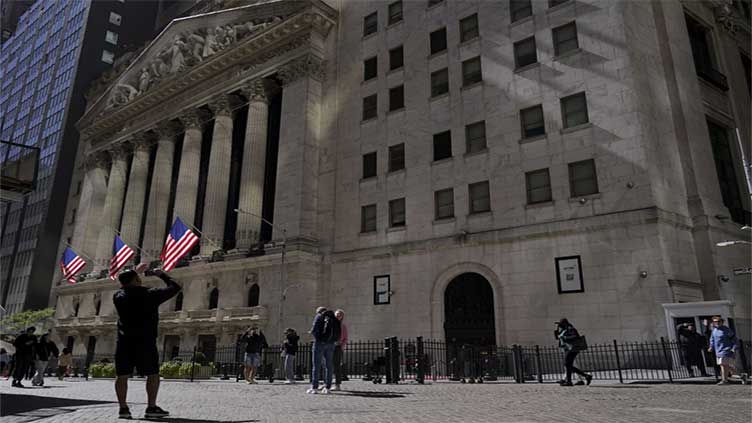Wall Street points lower on more strong jobs numbers, on track for mixed week

Business
Wall Street points lower on more strong jobs numbers, on track for mixed week
NEW YORK (AP) - Markets on Wall Street pointed slightly lower early Friday after another strong government jobs report, which could factor into the Federal Reserve’s next decision on interest rates later this month.
Futures for the Dow Jones industrial average fell 0.3% before the bell, while futures for the S&P 500 dipped around 0.2%.
U.S. employers added a surprisingly robust 275,000 jobs in February in a sign of continued economic strength. The jobs number came in well ahead of the 200,000 jobs that economists were expecting, according to the data firm FactSet. The unemployment rate increased to 3.9%.
The hope among traders is that the another strong report doesn’t deter the Federal Reserve from cutting interest rates.
Fed Chair Jerome Powell said in testimony on Capitol Hill this week that the central bank is “not far” from delivering the cuts to interest rates that Wall Street craves so much. He said again that the Fed is just waiting for additional data to confirm inflation is cooling.
It’s a key point on Wall Street, where after shelving earlier hopes for cuts to begin in March, traders now see June as the likeliest starting point. The Fed’s main interest rate is at its highest level since 2001.
Next week the government issues two big inflation reports: one that measures prices at the consumer level and another that analyzes wholesale inflation.
In equities trading, Docusign jumped 9.2% after it topped Wall Street’s fourth-quarter sales and profit expectations.
Retailer The Gap, which owns Old Navy and Banana Republic, climbed 9.1% after it more than doubled analysts’ per-share profit targets.
Costco skidded 3.9% in premarket trading Friday after its second-quarter sales fell short of Wall Street’s projections.
In Europe at midday, France’s CAC 40 was unchanged, while Germany’s DAX dipped 0.2% and Britain’s FTSE 100 shed nearly 0.6%.
In Asia, Japan’s benchmark Nikkei 225 added 0.2% to finish at 39,688.94. Sydney’s S&P/ASX 200 jumped 1.1% to 7,847.00. South Korea’s Kospi surged 1.2% to 2,680.35. Hong Kong’s Hang Seng rose 0.8% to 16,353.39, while the Shanghai Composite recouped early losses to be 0.6% higher at 3,046.02.
Although economic data from the region, such as China, remained relatively positive, investors stayed cautious. Higher interest rates could be in store, for instance, in Japan, once the economy picks up.
“This was driven by reports of (Bank of Japan) officials being more confident of wage growth as labor cash earnings outperformed,” said Tan Boon Heng at Mizuho Bank in Singapore.
In energy trading, benchmark U.S. crude fell 63 cents to $78.30 a barrel. Brent crude, the international standard, lost 58 cents to $82.38 a barrel.
In currency trading, the U.S. dollar fell to 146.71 Japanese yen from 147.90 yen, its lowest level in more than a month. The euro cost $1.0931, down from $1.0951.
On Thursday, the S&P 500 rose 1% to break last week’s record high. The Dow Jones Industrial Average rose or 0.3%, to 38,791.35 and the Nasdaq composite rose 1.5%.
The S&P is within reach of another winning week, but the Dow is on pace for its second down week in a row.



